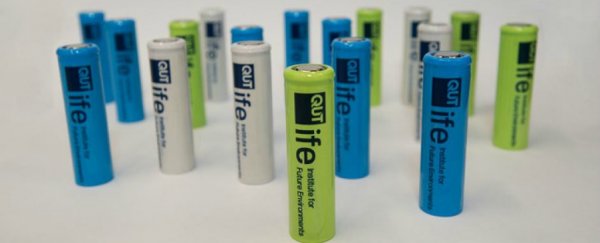We use lithium-ion batteries every day – those rechargeable wonders in our smartphones, laptops, and even a pacemaker if you have one.
Having a facility that creates lithium-ion batteries is however incredibly complicated, but now Australia has joined the ranks of countries with a facility capable of producing them.
Researchers from the Queensland University of Technology (QUT) have built the facility, located in Brisbane, over the last three years and it's just recently been completed.
The team hopes it will kick start a local battery manufacturing industry – an industry currently dominated by China at the global level.
"At the moment we can take someone to our facility and within an hour or two show them how to produce a lithium battery, and they can take it away in a device to run a little torch or something - it's not that hard," said team leader, Peter Talbot, to the ABC.
"We get in raw material from Australian suppliers and we develop the chemicals that go into the batteries and we actually roll and make the batteries and test them ourselves."
To create a lithium-ion battery, you must have low-humidity electro-manufacturing dry rooms. Unless you have very low humidity - between 1 and 10 percent - the batteries can be damaged by the water in the air.
The facility's home city of Brisbane is not known for its low humidity; typically it experiences 65-70 percent relative humidity during summer months.
The current batteries produced in the facility are the highest energy efficiency possible, according to the researchers, and include the types of batteries used in Tesla electric cars.
"Importantly, as part of this project we identified the best lithium-based powders to use to create a battery of the highest energy-efficiency standards possible," said Talbot.
"The powder is a combination of lithium and other compounds. We tested various compositions of chemicals until we were satisfied that we had achieved the best powder possible.
"Our process enables us to rapidly test and prototype rechargeable lithium-ion batteries of various shapes and sizes."
The team also hopes the facility will be used to rapidly prototype new battery formulations and cell types, without having to leave the country.
"As more and more vehicles in the future are manufactured to run on battery power, the development of longer-lasting batteries will be crucial to a vehicle's overall efficiency and appeal to consumers," Talbot added.

Queensland University of Technology is a sponsor of ScienceAlert. Find out more about their research.
